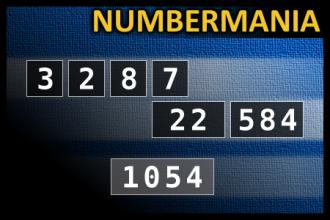Calculate the number 1054
NUMBERMANIA: Calculate the number 1054 using numbers [3, 2, 8, 7, 22, 584] and basic arithmetic operations (+, -, *, /). Each of the numbers can be used only once.Correct answers: 28
The first user who solved this task is Sanja Šabović.
#brainteasers #math #numbermania

